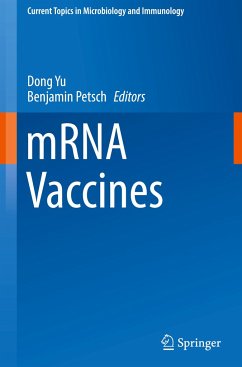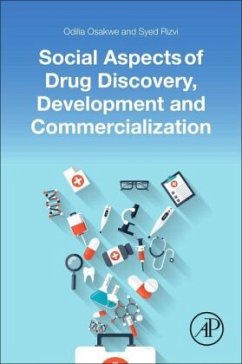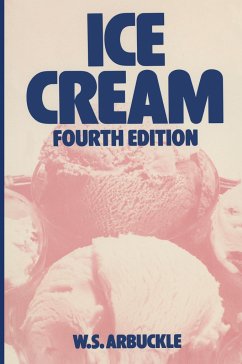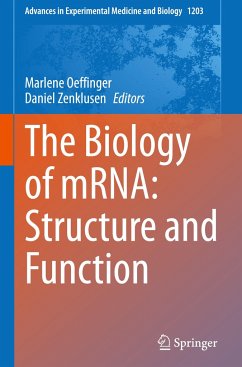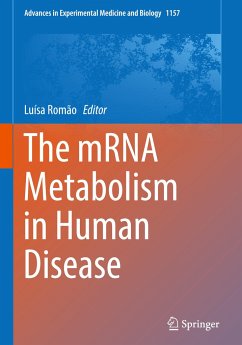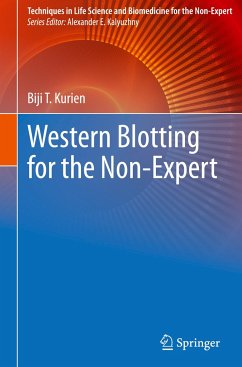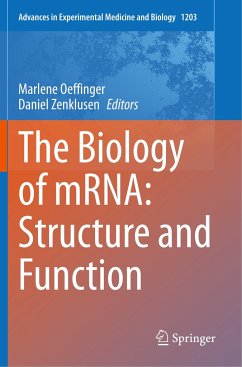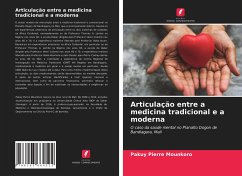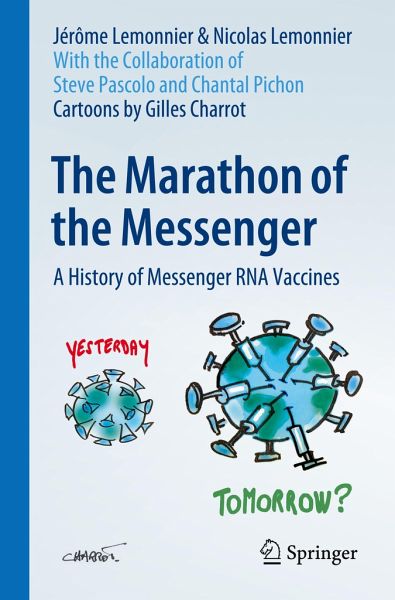
The Marathon of the Messenger
A History of Messenger RNA Vaccines
Mitarbeit: Pichon, Chantal; Pascolo, Steve; Meulien, Pierre;Zeichnungen: Charrot, Gilles

PAYBACK Punkte
14 °P sammeln!
The Covid-19 pandemic changed the world.Indeed a real race took place worldwide between SARS-CoV-2 on the one hand and researchers on the other - especially those specializing in messenger RNA vaccines. Four years after its emergence, the pandemic is not over, but some decisive battles have been won, thanks to the great success of mRNA vaccines.The Marathon of The Messenger presents the history of these mRNA vaccines, combining a scientific background with historical and economic perspectives.It appears that an important page in the history of these new vaccines was written in Europe, thanks t...
The Covid-19 pandemic changed the world.
Indeed a real race took place worldwide between SARS-CoV-2 on the one hand and researchers on the other - especially those specializing in messenger RNA vaccines. Four years after its emergence, the pandemic is not over, but some decisive battles have been won, thanks to the great success of mRNA vaccines.
The Marathon of The Messenger presents the history of these mRNA vaccines, combining a scientific background with historical and economic perspectives.
It appears that an important page in the history of these new vaccines was written in Europe, thanks to the crucial work of German and French scientists; this effort began in 1993 and continues to this day. In the face of a prevailing single-mindedness, these researchers pushed through a new therapeutic concept and defined the biotechnological keys that would open the way to the production of therapeutic messenger RNA in the fight against cancer and viral infections.
Written for a broad audience and accompanied by humorous cartoons, this book will appeal to anyone looking for scientific and historical answers about mRNA vaccines. Readers will discover not only the technical and scientific knowledge of how these vaccines work, but also the economic levers that were necessary to create this technology.
This book has been written in collaboration with Dr. Steve Pascolo, former director of CureVac, and the RNA messenger expert Professor Chantal Pichon. It also features a preface by Dr. Pierre Meulien, former director of the European Union public-private partnership Innovative Medicines Initiative (IMI).
Indeed a real race took place worldwide between SARS-CoV-2 on the one hand and researchers on the other - especially those specializing in messenger RNA vaccines. Four years after its emergence, the pandemic is not over, but some decisive battles have been won, thanks to the great success of mRNA vaccines.
The Marathon of The Messenger presents the history of these mRNA vaccines, combining a scientific background with historical and economic perspectives.
It appears that an important page in the history of these new vaccines was written in Europe, thanks to the crucial work of German and French scientists; this effort began in 1993 and continues to this day. In the face of a prevailing single-mindedness, these researchers pushed through a new therapeutic concept and defined the biotechnological keys that would open the way to the production of therapeutic messenger RNA in the fight against cancer and viral infections.
Written for a broad audience and accompanied by humorous cartoons, this book will appeal to anyone looking for scientific and historical answers about mRNA vaccines. Readers will discover not only the technical and scientific knowledge of how these vaccines work, but also the economic levers that were necessary to create this technology.
This book has been written in collaboration with Dr. Steve Pascolo, former director of CureVac, and the RNA messenger expert Professor Chantal Pichon. It also features a preface by Dr. Pierre Meulien, former director of the European Union public-private partnership Innovative Medicines Initiative (IMI).



